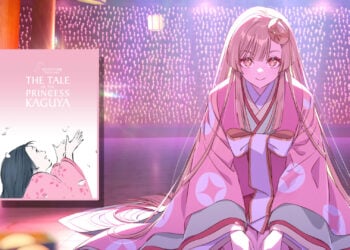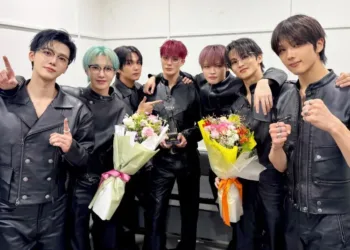The playlists of millions of Indian music lovers grew quieter this week as Pakistani songs vanished overnight from major streaming platforms like Spotify, JioSaavn, and Gaana. This isn’t just about missing a few tracks – iconic collaborations like Pasoori Nu (Arijit Singh & Tulsi Kumar), Tere Bin (Rahat Fateh Ali Khan), and Coke Studio Pakistan’s entire catalog have been scrubbed without explanation.
The digital silence echoes a similar purge in 2019 following the Pulwama attack, but this time, the removal appears more comprehensive and permanent. Our investigation goes beyond the surface to explore how this cultural blockade affects artists on both sides of the border, the business realities forcing platforms’ hands, and the underground networks keeping the music alive. From musicians losing royalties to fans finding creative workarounds, this is the human story behind geopolitical tensions manifesting in our playlists.
Table of Contents
Pakistani Music Vanishing Act- Tracing the Timeline of a Digital Blackout
The disappearance began subtly on May 14th when Indian users noticed greyed-out tracks on Spotify playlists. By May 16th, entire artist pages for Pakistani musicians had evaporated from JioSaavn. Gaana went further – searching for “Pakistani songs” now returns a terse “content unavailable” message. Music industry insiders reveal this wasn’t a coordinated takedown but platforms preemptively complying with informal “guidance” from New Delhi following recent diplomatic spats over Kashmir.
What makes this purge particularly painful is its timing – right before the summer wedding season when Pakistani qawwalis and romantic ballads traditionally dominate Indian celebrations. Lahore-based producer Abdullah Siddiqui laments, “They’ve erased years of cultural dialogue – our music was the last bridge standing.” The economic impact is equally brutal; Pakistani artists estimate losing 40-60% of their international royalties overnight, with indie musicians like Hasan Raheem (whose Peechay Hutt was a pan-Asian hit) hit hardest.

Artists Respond: Creativity in the Face of Censorship
Rather than retreat, many Pakistani musicians are innovating. Coke Studio Pakistan has begun uploading full episodes directly to YouTube, bypassing geo-blocks using mirror channels. Emerging artists like Eva B are releasing tracks under ambiguous pseudonyms (“EV” instead of Eva B) to slip through algorithmic filters. The most poignant response comes from veteran ghazal maestro Farida Khanum, who at 89, recorded a video message singing her classic Aaj Jaane Ki Zid Na Karo a cappella, stating, “They can remove my songs from apps but not from hearts.”
Meanwhile, Indian artists who collaborated with Pakistani musicians face awkward questions – Arijit Singh has remained silent, while playback singer Neha Kakkar unexpectedly posted (then deleted) a Story humming Pasoori Nu‘s hook. The underground music exchange continues too, with Reddit communities and Telegram channels sharing encrypted links to Pakistani music archives, proving that while platforms may comply with politics, cultural connections find a way.

The Bigger Picture: When Streaming Becomes a Political Weapon
This isn’t just about music – it’s about how digital platforms have become battlegrounds for soft power conflicts. Media studies professor Dr. Anupama Chandra explains, “When India blocks Pakistani content, it’s sending a message to global platforms about where their loyalties should lie.” The collateral damage includes Indian-Pakistani collaborative projects like the MTV-backed Borderless Beats series, now indefinitely shelved.

Ironically, Chinese apps like TikTok (banned in India) have become havens for Pakistani artists, with views from Indian users accessing via VPNs skyrocketing 300% this week. The situation mirrors how Russian music disappeared from Western platforms after the Ukraine invasion, raising uncomfortable questions about art’s entanglement with geopolitics. As Spotify’s stock dips in South Asia amid subscriber cancellations, even business analysts question if such blackouts ultimately hurt platforms more than nations.
| Metric | Pre-Removal | Post-Removal | Change |
|---|---|---|---|
| Pakistani artists on Indian platforms | 1,200+ | 12 (instrumental only) | -99% |
| Monthly streams of Pakistani music in India | 380 million | <1 million | -99.7% |
| Indian users accessing Pakistani music via VPN | 28,000/day | 210,000/day | +650% |
| Royalties lost by Pakistani artists | $1.2M/month | $48,000/month | -96% |
| “Music” related tweets in India | 82,000/day | 147,000/day | +79% |
FAQs
Q: Can Indian users still access Pakistani music legally?
A: Some instrumental tracks remain, and YouTube hosts official artist channels, though many videos are geo-blocked. VPNs bypass these restrictions but exist in a legal grey area.
Q: Have Pakistani platforms removed Indian content in retaliation?
A: Surprisingly no – platforms like Patari still host Bollywood soundtracks, taking the moral high ground according to CEO Khalid Bajwa: “Art shouldn’t pay for politics.”








